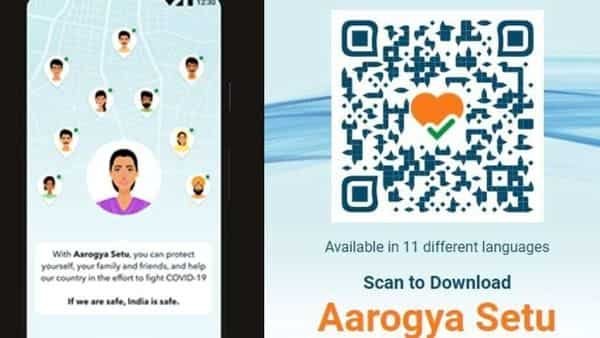A petition has been filed in the Kerala High Court, challenging the “unconstitutional, unduly onerous and privacy infringing” directives issued by the Centre making the use of ‘Aarogya Setu’ app mandatory for public and private employees and persons residing in containment zones before division bench comprising Justices Shaji P Chaly and M R Anitha.
Managing Partner of Leetha Industries, Jackson Mathew has filed the plea who has been made responsible, in the aftermath of the Govt order, to ensure 100% coverage of the App in his organization.
Santhosh Mathew, Arun Thomas, Jennis Stephen, Vijay V. Paul, Karthika Maria, Veena Raveendran, Anil Sebastian Pulickel, Divya Sara George, Jaisy Elza Joe, Abi Benny Areeckal & Leah Rachel Ninan were the counsels for petitioner.
At the outset, the Petitioner has clarified that he does not contest the use of “contact-tracing apps” however, strives to highlight that the Aarogya Setu app, in its present form, “disproportionately invades” the Constitutional rights of individuals. He has thus prayed for harmonization of contact tracing with the right to privacy of individuals.
The plea stated that existence of a pandemic does not efface the Constitutional rights of individuals and hence, contact tracing must be “reconciled” with these rights. However, it is pointed out that Contact-tracing apps are experimental technology whose harms are not yet fully understood.
Also Read: All Officials to download Aarogya Setu app: Requests Delhi HC
“By their very nature, contact tracing apps collect, store, and use sensitive personal data. For this reason, their utilisation raises serious questions about the rights to privacy, data protection and security, and informational self-determination,” the plea stated.
The Petitioner has submitted that when compared to alternatives in use in other countries, Aarogya Setu is significantly more intrusive in terms of data collection. He has emphasized that the Aarogya Setu creates a centralised data collection system, by design. This is opposed to a decentralised system, which is in use in many countries.
The petitioner has pointed out the following issues,
- The App violates core principles of data privacy (as set out by the Supreme Court in KS Puttaswamy v. Union of India, (2017) 10 SCC 1 and KS Puttaswamy v. Union of India (II), (2019) 1 SCC 1), including “purpose limitation” and “data minimization”;
- It collects more personal data than is required to combat Covid-19 through contact-tracing, thus violating the principle of collection limitation;
- There is no prohibition against the sharing of personal information amongst different government departments of the Government of India, thus creating an enabling structure of surveillance and use of the data collected on the app for purposes other than tackling Covid-19 (such as, for example, use by the police);
- The App violates the basic precept of privacy by coercing consent under threat of prosecution and constitutes a prima facie violation of Article 21.
- Mandatory imposition of Aarogya Setu is prima facie contrary to Articles 14, 19, and 21 for it lacks a valid legal basis, and solely relies upon executive instructions.
- Reliance is placed on State of Madhya Pradesh v. Thakur Bharat Singh, 1967 (2) SCR 454, whereby it was held that all executive action, which operates to the prejudice of any person, must have the authority of law to support it.
- Neither the provisions of the Disaster Management Act or the Epidemic Diseases Act authorise the Respondent to infringe the privacy rights of Indian citizens.
- The only safeguards and privacy protections currently can be found in the “Terms of Service” and the ‘Privacy Policy” of the app, which can be changed unilaterally at the instance of Union of India. Thus, the fundamental right to privacy of the Petitioner is subject to a one-sided contract that he has been forced to enter into with Union of India, under the threat of criminal sanctions;
- Contact tracing apps are experimental technologies, with their efficacy under doubt, and numerous privacy concerns. For this reason, their use – if they are to be used – must take place within a strict rule of law framework, and must be “self-limiting by design” – that is, these apps should disable themselves after the pandemic is over. However, there is no such “sunset clause” in the Aarogya Setu App
The Kerala High Court had sought the response of the Central Government in a similar petition.
The matter will be next heard on May 12.

